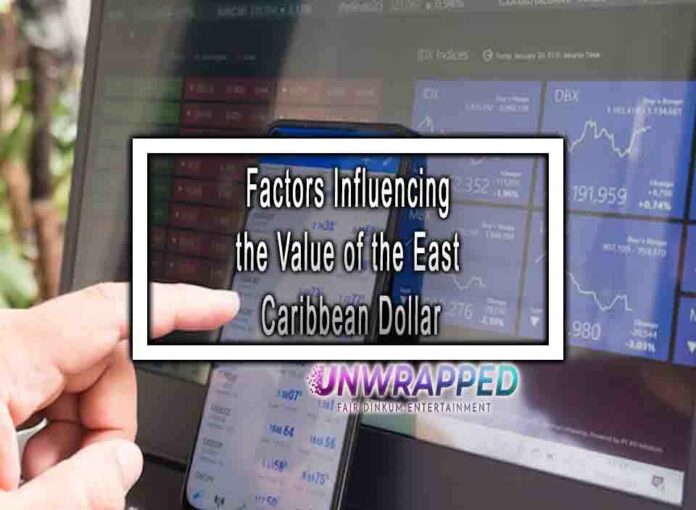The East Caribbean Dollar (XCD) is the official currency of eight countries and territories in the Eastern Caribbean region. These countries form the Eastern Caribbean Currency Union (ECCU), and the Eastern Caribbean Central Bank (ECCB) is responsible for issuing and regulating the currency. The value of the East Caribbean Dollar is influenced by various factors, including:
- Currency Peg:
- The East Caribbean Dollar is pegged to the United States Dollar (USD) at a fixed rate. This means that the ECCB maintains a stable exchange rate by holding sufficient foreign exchange reserves to back the value of the East Caribbean Dollar. The peg to the USD provides stability but also limits the flexibility of the currency.

- The East Caribbean Dollar is pegged to the United States Dollar (USD) at a fixed rate. This means that the ECCB maintains a stable exchange rate by holding sufficient foreign exchange reserves to back the value of the East Caribbean Dollar. The peg to the USD provides stability but also limits the flexibility of the currency.
U.S. Dollar Movement:
- Changes in the value of the U.S. Dollar directly impact the East Caribbean Dollar due to the currency peg. If the U.S. Dollar strengthens or weakens against other major currencies, the East Caribbean Dollar will follow suit.
Economic Conditions in the ECCU:
- Economic factors within the Eastern Caribbean Currency Union, such as GDP growth, inflation rates, and employment levels, play a role in influencing the value of the East Caribbean Dollar. A strong and stable economy generally contributes to a stronger currency.
Interest Rates:
- The interest rate decisions made by the ECCB influence the value of the East Caribbean Dollar. Higher interest rates may attract foreign capital, increasing demand for the currency and potentially strengthening it.
Foreign Exchange Reserves:
- The level of foreign exchange reserves held by the ECCB is crucial for maintaining the currency peg. Sufficient reserves are needed to ensure the ECCB can intervene in the foreign exchange market if necessary to defend the fixed exchange rate.
Trade Balances:
- The trade balances of countries within the Eastern Caribbean Currency Union impact the demand for the East Caribbean Dollar. Trade surpluses may lead to increased demand, while trade deficits may put pressure on the currency.
Global Economic Conditions:
- The overall global economic environment can influence investor sentiment and impact the value of the East Caribbean Dollar. Economic stability and growth in major trading partners can positively affect the currency.
Tourism Industry:
- The tourism sector is a significant contributor to the economies of many ECCU member countries. Fluctuations in tourism receipts and visitor arrivals can impact foreign exchange earnings and influence the value of the East Caribbean Dollar.
Natural Disasters and Climate Events:
- Given the vulnerability of the Eastern Caribbean to natural disasters and climate events, the impact of such occurrences on the local economies can influence the value of the East Caribbean Dollar. Rebuilding efforts and economic disruptions may play a role.
Government Fiscal Policy:
- Fiscal policies, including government spending, taxation, and debt levels, can impact the economic conditions within the ECCU and influence the value of the East Caribbean Dollar.
Global Financial Market Conditions:
- Conditions in global financial markets, including changes in investor sentiment and risk appetite, can affect the value of the East Caribbean Dollar. Investors may shift funds based on broader market trends.
Understanding these factors is essential for assessing the dynamics of the East Caribbean Dollar’s value. The currency’s fixed exchange rate arrangement with the U.S. Dollar provides stability but requires careful management of economic policies to maintain competitiveness and support the overall economic health of the ECCU member countries.












